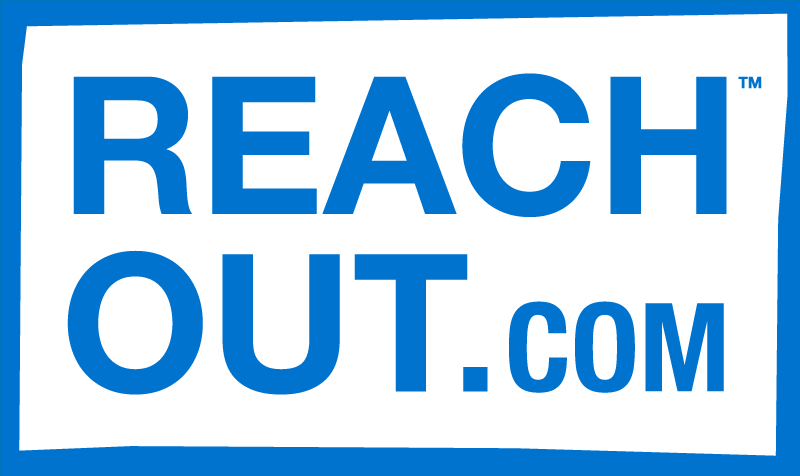Naturopath vs doctor
Posted by: Darren31985665
18th Apr 2022 07:25pm
Who would you visit for minor health issues and advice about health a naturopath or doctor and why, given doctors don’t study nutrition in depth
You must be a member to reply to this chat topic. Click here to sign in.
Help Caféstudy members by responding to their questions, or ask your own in Café Chat, and you will get the chance of earning extra rewards. Caféstudy will match these and donate equally to our two chosen Australian charities.

Australian Marine Conservation Society are an independent charity, staffed by a committed group of scientists, educators and passionate advocates who have defended Australia’s oceans for over 50 years.
ReachOut is the most accessed online mental health service for young people and their parents in Australia. Their trusted self-help information, peer-support program and referral tools save lives by helping young people be well and stay well. The information they offer parents makes it easier for them to help their teenagers, too.
Challenge Challenge is a not-for-profit organisation that supports children and families living with cancer, 365 days a year.
Our support is free and immediate, helping to lighten the cancer journey by addressing the practical, social, and emotional needs of all our members.
Our support is free and immediate, helping to lighten the cancer journey by addressing the practical, social, and emotional needs of all our members.



Comments 16
Ziah
I see an integrative doctor who HAS studied naturopathy, nutrition and alternative care alongside his medical degree and decades of ER and GP experience. He is brilliant. But if I want to know anything about nutrition or anything affecting me, etc, I do my own research, then discuss with him. I don't sit back and rely solely on any "professional" for information - being proactive and taking responsibility for my own knowledge about my own needs is paramount to me
Ziah
I choose to see an integrative doctor - a GP who has done extensive post-grad training in naturopathy, nutrition/dietetics and specialised fields such as the thyroid. My GP is also a veteran ER doctor with many years in emergency medicine as well. I now travel for almost an hour each way just to see him since he left my local practice - because he is worth it, and worth every penny (though the $100 gap between his fee and Medicare is very hard to find).
Sam3258
In Australia there’s actually no law over who can call themselves a naturopath. I wouldn’t call them health care professionals. If you’re looking for someone who has studied nutrition in depth you should visit an accredited dietitian. Otherwise doctors 100%.
BigJimbo
fully agree
BrittE3
It would really depend on the ailment and if there is a family history of any issues associated, but I would mainly just see a doctor. Reason being is it is covered by Medicare so I can get the support for little to no money. Also the “remedies” are often covered by PBS, compared to herbal options and naturopaths.
l0lapx
As Europeans we grew up with Naturopaths, Herbalist , Irodologist we didnt need doctors apart from surgeries. Still prefer these three to doctors especially after the last 3 years and continuing USA Crapola.
Though after going to natural practioners you learn a lot, and if you eat healthy and exercise you dont need a doctor often. Thank goodness
PukPuk
Going back 20 / 30 years Doctors seemed to be wary of these strange people calling themselves Naturopaths. We had a couple of doctors in the older age group who completely dismissed them but as time went by newer doctors seemed to be more accepting of the Naturopaths value.
These days my current doctor is actually referring patients to Dieticians and Naturopaths where appropriate and even more recently have been taken them into the expanded Clinic under the Allied Health section.
Mumof4GC
Definitely a naturopath. I am not interested in a quick fix I want to deal with the root of an issue not just bandaid it.
Mumof4GC
I definitely would go naturopath first before doctor. I don't want a pill to bandaid a symptom I want to get to the cause.
ab
It's been said that the greatest storms announce themselves by the gentlest of breezes...I wouldn't know what a 'minor health issue' is until a doctor told me it was minor, so my first action would be to have the issue examined by my GP. If she prescribed a prolonged course of medication for a minor problem, then I would consider visiting a naturopath to see if there was a more natural treatment. :)
Zsuzsanna32296625
I prefer it best when doctors are trained in naturopathic modalities, so there is only one appointment to go to and pay for. Besides this I think integration is best and if one person is capable to do that that helps to choose the best options.
AdelaideM
I would go to a doctor as a first call, and then research alternative options to treat the symptoms.
People seem to think that if a doctor says to do something you absolutely have to. You don't.
A doctor can tell you if it's something that could be more serious, and therefore recommend tests, whereas a naturopath won't be able to do that. It could be something as simple as being a bit itchy "down there", so a naturopath recommends to avoid yeast products. Meanwhile you have an STI and end up infertile when literally a simple test could have shown you what was wrong.
Plus, if you've got a minor health issue, it could be something completely unrelated to food, so nutrition may not be relevant anyway - and if it is, they should refer you to one.
Alternatively, my GP has also studied acupuncture, so if she thinks it's genuinely something mild that can be fixed, she'd just refer me to an alternative health practitioner anyway.
Prad
The goal of naturopathic medicine is to treat the whole person -- that means mind, body, and spirit. It also aims to heal the root causes of an illness -- not just stop the symptoms. A naturopathic doctor may spend 1 to 2 hours examining you.
While doctors look for quick fix and want to treat for the symptoms. So it depends on what is you health issues and how may affect it in upcoming days. Nevertheless no issues is minor in your health.
We have to decide ourselves in right time. Someone has truly said, "PREVENTION IS BETTER THAN CURE".
Prad
The goal of naturopathic medicine is to treat the whole person -- that means mind, body, and spirit. It also aims to heal the root causes of an illness -- not just stop the symptoms. A naturopathic doctor may spend 1 to 2 hours examining you.
While doctors look for quick fix and want to treat for the symptoms. So it depends on what is you health issues and how may affect it in upcoming days. Nevertheless no issues is minor in your health.
We have to decide ourselves in right time. Someone has truly said, "PREVENTION IS BETTER THAN CURE".
jtmorri
I wouldn't use either. Your everyday mainstream medicine GP is useless, disinterested and always looks for a quick fix rather than addressing the core of the problem and investigating.
If the minor health issue is nutrition related I wouldn't go to a naturopath as they are likely to be extreme with their approach, bias toward vegetarianism and possible dangerous supplementation with unregulated medications that could prove dangerous, toxic or interact with medication already taken.
If the approach you need is related to gut, digestion and hormones a gastroenterologist with a naturopathic approach would be useful, otherwise a dietician would be appropriate.
Avocado Green
I would choose a dietitian. I like that they have a science background and still intervene in the most natural and wholesome way possible - through diet. From my experience, doctors tend to have a very broad knowledge but less depth in all areas. Naturopaths tend to study herbs in depth, and alternatives to medicine, but they don't actually often know diet and nutrition in depth! Nutritionists do nutrition basics. Dietitians are nutritionists with extra qualifications to intervene and change diet in medical cases. So that often have good medical understanding but then natural solutions for fixing the real underlying problems.